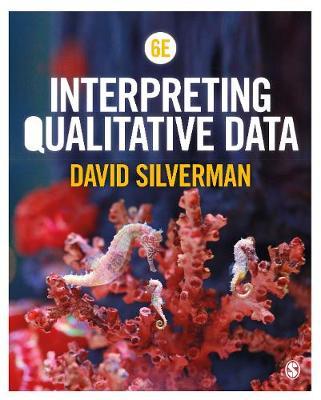
Qualitative researchers often try to do the same as quantitative research but with smaller samples. This interactive master-class is relevant to PhD students and early career researchers and more experienced researchers who want to do qualitative research and to write it up rigorously and effectively.
This course is being offered online (via zoom) across 4 evening sessions from 6.30pm to 9.00pm, Australian Eastern Standard Time (UTC +10)
(ie Melbourne, Sydney, Canberra time)
Prof David Silverman is an outstanding scholar specialising in qualitative research. David is Professor Emeritus in the Sociology Department at Goldsmiths College and Visiting Professor in the Management Department at King's College, University of London and the Business School, University of Technology, Sydney. He has authored 15 books and 45 journal articles on qualitative research, ethnography and conversation analysis. He is the author of four bestselling Sage textbooks on qualitative research and has published monographs on his research on a large public sector organization, medical consultations and HIV-test counselling. Prof Silverman has hosted workshops on qualitative research for PhD students in Australia since 2009 as well as in Europe, Sri Lanka, Hong Kong, Malaysia and Tanzania. He successfully supervised 30 PhD students, three of whom are now full Professors.
This master-class offers lectures and data workshops covering the latest approaches to key areas of qualitative research. It outlines threats to credibility and shows how to make your research credible.
- Finding a topic in your data (as opposed to quantitative research, qualitative research is often inductive; discovering unexpected things in your data)
- Mixed methods. (Mixing qual and quant data. Using multiple qualitative methods. Advantages and limitations)
- How many cases do you need? (sampling to social processes not to populations)
- Applying qualitative research to social problems and practice (avoiding pre-defined policy aims; discovering practical relevance at the conclusion of a research project)
The workshop will consist of 4.5 hours of lectures, 3 data workshops and one-to-one supervisions.
Individual, online 15 minute discussions with each participant about their research are available.
Each participant will be asked to contact David with brief details of their research and up to three questions. Further readings may then be sent as appropriate.
The course will be taught over four consecutive evenings with the following timetable.
All lectures will be followed by a Q&A.
Day 1
6.30 pm Introductory lecture: Different versions of qualitative research
7.15 pm Lecture 1: Finding a topic in your data
8.30 – 9.00pm - small groups sessions
Day 2
6.30 pm Feedback from group sessions
7.00 pm Lecture 2: Credible qualitative research
8.15 – 8.45 pm - small group sessions
Day 3
6.30 pm Feedback from group sessions
7.00 pm Lecture 3: Mixed methods
8.15 – 8.45pm - small group sessions
Day 4
6.30 pm Feedback from group sessions
7.00 pm Lecture 4: Qualitative research for social impact
8.15 – 8.45 pm - Open discussion
Days 5-6
6.00 pm onwards - One-to-ones with agreed timetable
This workshop will take place 'live' over Zoom.
Participants will be sent course documents including workshop topics to be read in advance.
The workshop will consist of 4.5 hours of lectures, 3 data workshops and one-to-one supervisions.
Each participant will receive a copy of the Prof. Silverman's new 6th Edition of Interpreting Qualitative Data
Please view a short Youtube video where Prof. Silverman talks about qualitative research:
https://www.youtube.com/watch?v=AVnIO4vzXg8
and
https://www.youtube.com/watch?v=qW_SKXYnhyQ
Now read an online paper, where he highlights themes from this course:
http://www.qualitativesociologyreview.org/ENG/Volume25/QSR_9_2_Silverman...
Any of Silverman’s current Sage textbooks.
Interpreting Qualitative Data [sixth edition] or, for more advanced researchers, his Very Short Book [second edition].
At first I was questioning the point of attending a minority approach course given I am an inexperienced researcher. What I didn't realise is that the minority perspective has actually sharpened my understanding and my objectivity of the mainstream methods. It has been thought provoking, Im still pondering the insights. An excellent course with an outstanding instructor.
